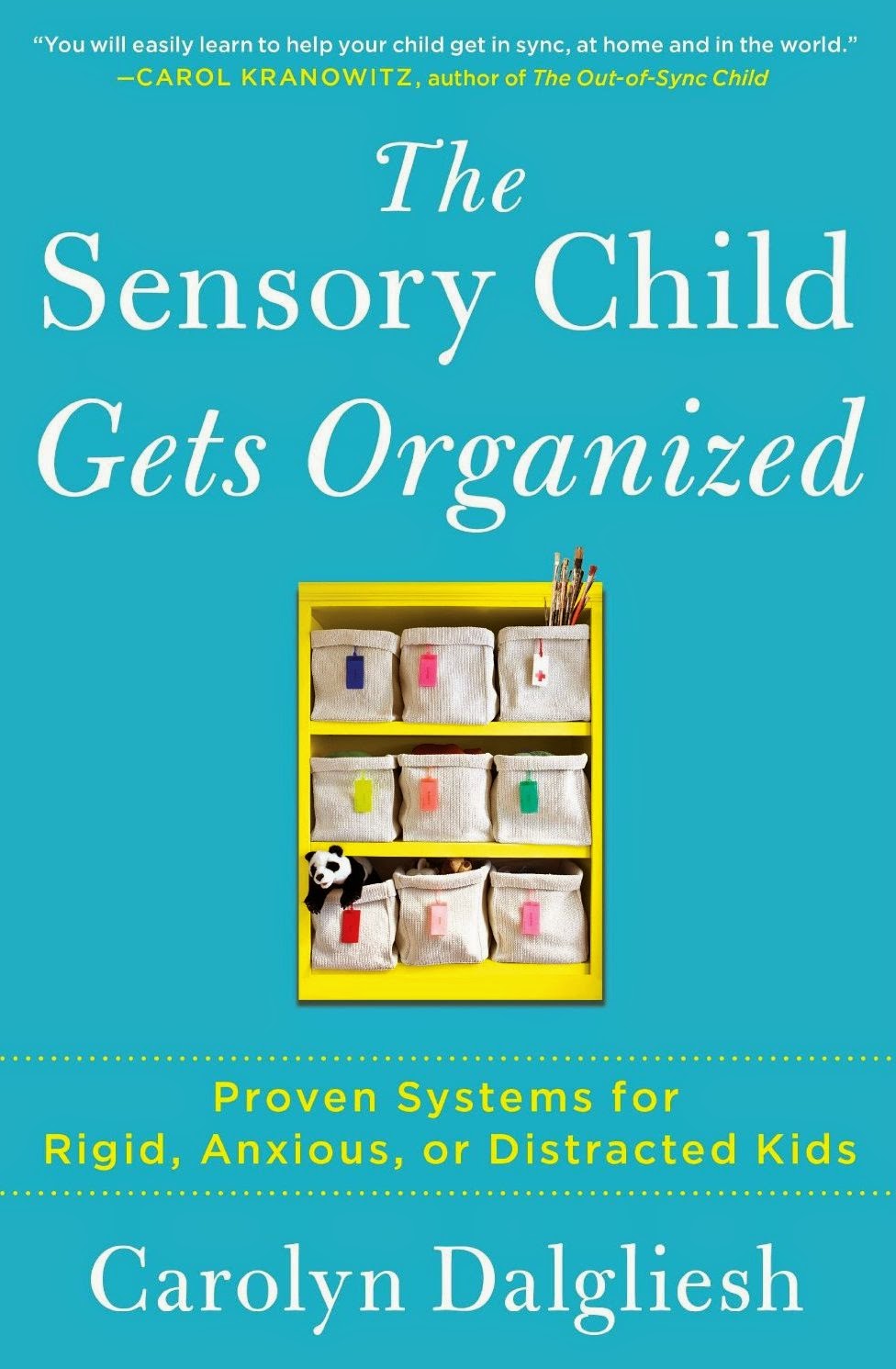In The Sensory Child Gets Organized (Touchstone, 2013), author Carolyn Dalgliesh teaches parents/caregivers to design organizational systems that tap into the “innate strengths and learning styles” of children with attention-deficit/hyperactivity disorder, anxiety, obsessive-compulsive disorder, sensory processing disorder, bipolar disorder and autism.
Dalgliesh emphasizes three main questions: 1. How can I break this down into a more manageable task? 2. How can I eliminate some of the (external and/or internal) stimuli that may be distracting? and 3. What visual aid can I create to support the task at hand?
As a self-advocate, I recommend this book to other adults on the spectrum. The self-advocate can ask many of the same questions posed by a parent or caregiver, and he or she may benefit from examination of learning style and strengths.
My only exceptions when recommending this book concern Dalgliesh’s selection of websites among her list of further resources. Autism Speaks would have no place on such a list if it were drafted by me, and I certainly wouldn’t list it first in line. Its consistent portrayal of autistic people as “burdens” and sources of despair disqualifies it as any “advocacy organization” that I would authorize to speak for me. I also harbor skepticism about the inclusion of “Generation Rescue.” I advise readers to consider the degree to which people with autism have direct involvement with any organization listed. “Nothing about us, without us.”
Disclosure of material connection: My taxes support my public library’s acquisition of this and other resources. I consider the access I enjoy to be a “priceless” return on my investment.

No comments:
Post a Comment
Robust debate and even unusual opinions are encouraged, but please stay on-topic and be respectful. Comments are subject to review for personal attacks or insults, discriminatory statements, hyperlinks not directly related to the discussion and commercial spam.